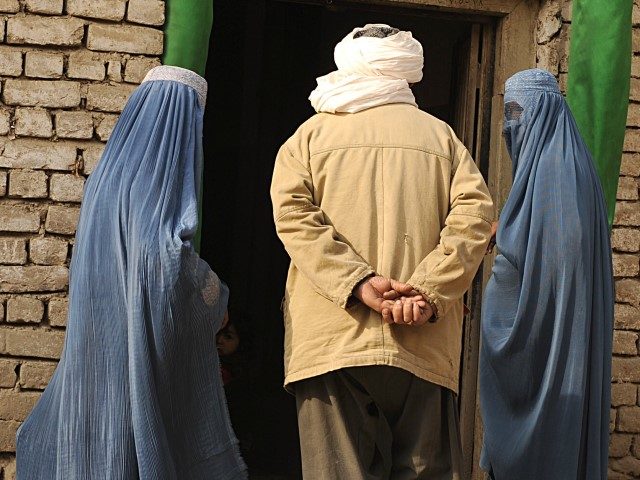Taliban spokesman Inamullah Samangani issued a Twitter statement on Thursday in which he said Taliban leaders met earlier that day with U.N. representatives to discuss women’s rights in Afghanistan to mark the occasion of International Women’s Day, which took place on Wednesday.
Samangani’s March 10 statement read, in part:
Maulvi Abdul Salam Hanafi, Administrative Deputy Prime Minister of the Islamic Emirate of Afghanistan, met this afternoon with Michelle Bachelet, UN High Commissioner for Human Rights, and his [Hanafi’s] accompanying delegation at his office. UN Special Representative for Afghanistan Deborah Lions also attended the meeting.
Ms. Michelle Bachelet shared her suggestions on human rights in Afghanistan and said that the leadership of the Islamic Emirate has assured the situation of minorities, tribes, women and children.
The Taliban seized control of Afghanistan on August 15, 2021, after deposing Kabul’s formerly United States-backed government. The group is based on Sunni fundamentalism and organizes its rule around a strict interpretation of sharia, or Islamic law. When previously ruling Afghanistan from 1996 to 2001, the Taliban banned girls and women from leaving their homes unchaperoned or uncovered by an Islamic veil. The group invoked sharia to enforce movement restrictions on all girls and women, which included a prohibition on girls attending school and women attending university.
The British Broadcasting Corporation (BBC) reported on December 8, 2021, that “[A]cting Deputy Education Minister Abdul Hakim Hemat confirmed that girls would not be allowed to attend secondary school until a new education policy was approved in the new year.”
Hemat’s disclosure confirmed the Taliban had reimposed a system of sharia on Afghans since seizing control of the country’s government last summer. Despite the Taliban’s renewed efforts to close secondary girls’ schools in Afghanistan, some such learning institutions successfully resisted the shutdowns, the BBC revealed, writing:
[S]ome girls’ schools are reported to have re-opened after negotiating with local Taliban officials.
In the northern city of Mazar-i-Sharif in Balkh province, one head teacher told us that there were no problems and girls were attending school as normal.
The Taliban’s previous rule over Afghanistan saw its members crack down on schools that defied its strict orders not to educate young girls. The Associated Press detailed the Taliban’s reasoning for opposing girls’ education in an article published in 1998, writing:
When the Taliban religious army swept into Kabul in September 1996, it shut down girls’ schools, saying the curriculum was against the tenets of Islam. Schools for boys have since re-opened, and the Taliban has allowed girls, 8 and younger, to study only the Islamic holy book, the Koran.
After the age of 8, girls must leave school.
The Taliban has attempted to project an image of reform in recent months, claiming it has modernized its stances toward issues such as women’s rights. This effort is evidenced by Hanafi’s meeting with U.N. human rights representatives on March 9 and by a related propaganda message from the Taliban published by the Taliban-controlled Afghan news agency Khaama Press on March 8.
“The Foreign Ministry of the Islamic Emirate of Afghanistan [IEA] has congratulated 8th March, the International Women’s Day to all the women in the world,” the Khaama Press relayed on Tuesday.
“IEA [the Taliban] is committed to addressing the plight of Afghan women, and providing facilities for an honorable and beneficial life in light of the noble religion of Islam and our accepted tradition,” the Taliban press release read.
Taliban spokesman Zabihullah Mujahid issued a similar message through his Twitter account on March 8.
“The Islamic Emirate is committed to upholding the Sharia rights of all Afghan women,” Mujahid wrote.
“International Women’s Day is a great opportunity for our Afghan women to demand their legitimate rights. We protect and defend the rights of our Afghan women, God willing,” the Taliban mouthpiece added.

COMMENTS
Please let us know if you're having issues with commenting.